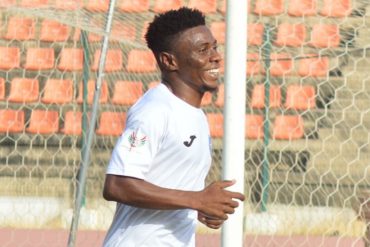
Sabi pipo inside education mata don chook mouth for di controversial issue about di right age wey pikin suppose start school for Nigeria to avoid underage admissions into tertiary institutions.
According to education experts pikin no suppose enta school until dem dey between five and six years.
Dis dey come afta di Minister of Education for Nigeria announce again say dem no go allow underage candidates write di Senior Secondary School Certificate Examinations (SSCE).
E mean say if any pikin age no reach di approved age limit dem no go qualify to write di West African Examinations Council (Waec) and di National Examinations Council (Neco).
Dis two regional and national exams na one of di basic requirements students need to enta higher institutions. Dem must present results and certificates to show say dem graduate true-true from secondary school.
- Cut-off mark at 140 for University candidates plus oda new policies from Jamb
- Why UK university, Home Office order Nigerian students to leave di kontri
- Nigerian students get help s education loan go live
Nigeria Minister of Education tok say Nigeria goment don tell Waec and Neco wey to comply wit di directive on 18 years age limit for any candidate to qualify for di two examinations.
Im also add say di age limit for any candidate to write di Unified Tertiary Matriculation Examination (UTME) wey di Joint Admissions and Matriculation Board (Jamb) dey organise na still 18 years.
“Na 18 years. Wetin we do for di meeting wey we bin get wit Jamb na to allow dis year and for am to serve as a kind of notice for parents say dis year, Jamb go admit students wey dey below di age but from next year, Jamb go insist say anybodi wey dey apply to go university for Nigeria go meet di required age wey be 18.
Wen be di right age to enta school
One educationist, Ms Harmony Mark-Ewa tok say di 18 years limit no be new tin, e dey sound new to pipo sake of say di implementation bin no strong and di correct age for any pikin to start school proper na between five and six years.
“I use di word reinforce becos 18 years don always be di minimum requirements based on di 6-3-3-4 system of education, wey be di 9-3-4 system now.”
She say dis policy go address di issues of underage admissions and graduations, wey don affect di quality of education and give di kontri bad image.
“From a developmental perspective, research suggest say adolescents dey pass through significant cognitive, social, and emotional changes between 16 and 18 years old.
As goment set di minimum age requirement for 18 years di goment acknowledge say students need enof time to develop essential life skills, mature, and acquire di necessary foundational knowledge bifor dem enta tertiary education.
Di decision align wit developmental theories, particularly Piaget theory of cognitive development.
“At 18, individuals don typically enta di formal operational stage, capable of abstract thinking and complex problem-solving – skills wey dey important for higher education.”
On 18 July, 2024 Nigeria Minister of Education, Tahir Mamman, bin tok say 18 years old na di required age for admission into tertiary institutions for Nigeria.
“Our laws require students to dey in school from six years – even basically if you compute di number of years pupils, and learners suppose dey for school, di number you go end up wit na 17 and a half – from early child care to primary school to junior secondary school and den senior secondary school. You go end up wit 17 and a half by dat time dem don ready for admission.
“So, we no dey come up wit a new policy contrary to wetin some pipo dey tok, we just dey remind pipo of wetin dey exist since.”
How Nigeria 9-3-4 system of education be?
Ms Harmony Mark-Ewa say one of di reasons of underage tertiary admissions na di term ‘super intelligence’ wey most parents dey use describe how dia children sabi book reach.
Some go argue say dia pikin don sabi book pass di next class diafore dem go skip one or two classes and dis dey over burden di children.
She also explain say some schools no dey follow di educational system for Nigeria as e suppose be sake of say dem dey allow children write exams wen dia age neva reach.
“Di concept of “super intelligence” dey debatable. Intelligence involve plenti tins and aspects like linguistic, logical-mathematical, spatial, and emotional intelligence, na wetin Howard Gardner theory of multiple intelligences tok.
While some children fit excel for certain areas, to label dem as “super intelligent” fit dey misleading and e fit neglect oda critical aspects of dia development.”
She say di 9-3-4 system for Nigeria dey designed to provide a comprehensive education, we go ensure say students get essential skills and knowledge for each stage. See di breakdown for hia:
9 Years of Basic Education: Dis stage na to lay di foundation for literacy, numeracy, and critical thinking, wey dey crucial for any further education.
3 Years of Senior Secondary Education: Dis stage go prepare di students for tertiary education or vocational training, offering a broad-based curriculum.
4 Years of Tertiary Education: Di focus here na on specialised knowledge and skills wey dey necessary for professional and career development.
But some parents tell BBC Pidgin say make goment no tell dem how to train dia pikin and wen dia npikin suppose enta school.
Earlier Jamb registrar Professor Ishaq Oloyede bin para say Nigerian universities get hand for underage admissions.
Im condemn di activities of parents, candidates and schools and di universities wey dey spoil di name of di kontri globally wit dis actions.
E beg di university authorities to help dem stop dis international embarrassment as e make reference to cases wia foreign institutions write letters to dem just to confam di age of candidates and how possible e be to graduate from university as early as 15 years for Nigeria.









